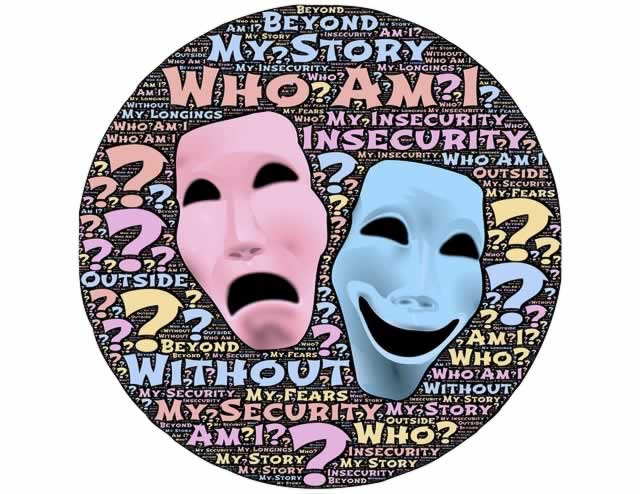What is psychodrama therapy? This is a question that many people have, but few can answer accurately. Psychodrama therapy is a unique form of counseling that uses theater techniques to help individuals work through their issues and problems. It can be an extremely effective form of therapy for those who are struggling with emotional or mental health issues. In this blog post, we will take a closer look at what psychodrama therapy is as well as how it can help you or someone you love!
Contents
Defining Psychodrama Therapy

Psychodrama therapy is best defined as a form of experiential group therapy that uses action methods, including drama and role-playing, to achieve therapeutic goals. It is a type of psychotherapy that was developed by Jacob Moreno in the early 1900s. Moreno was a psychiatrist who believed that the best way to understand someone’s behavior was to observe them acting out their thoughts and feelings in a safe environment.
Since its inception, psychodrama has shown effectiveness in treating a wide variety of mental health issues. It has been successful in treating clinical disorders and conditions, as well as strengthening people’s emotional health.
How Does Psychodrama Therapy Work?
Psychodrama therapy usually takes place in a group setting. The therapist will guide the group through different exercises designed to help them explore their emotions and thoughts about a particular issue or problem. These exercises often involve role-playing and improvisation. For example, one exercise might involve having the group members take on the roles of different people involved in a conflict. Another exercise might involve having the group act out a scene from someone’s life that is causing them distress.
The therapist will help the group process their emotions and thoughts after each exercise. The goal of psychodrama is to help the individuals in the group to understand themselves better and to find new ways of dealing with their problems.
It has also been shown to be an effective form of therapy for those who have experienced trauma. This is because it can help individuals to re-enact their trauma in a safe environment and to work through their feelings about what happened.
Techniques Used

There are many different techniques that can be used in psychodrama therapy. Some of the most common techniques include:
- Role-playing: This involves having the individuals in the group take on the roles of different people involved in a particular situation. For example, they might take on the role of a family member, friend, or co-worker.
- Improvisation: This involves making up scenes or dialogues on the spot. The therapist will often give the group a prompt to help them get started.
- Action methods: These are techniques that help individuals to understand their thoughts and feelings by further acting them out.
- Double casting: This involves having two people play each role in a scene. One person will play the role of themselves, while the other person will play the role of someone else involved in the situation.
- Soliloquy: This is when an individual gives a speech to the group about their thoughts and feelings. It can be helpful for those who are struggling to express their emotions.
- Role Reversal: This technique involves having the individual take on the role of someone else involved in their problem. For example, if someone is struggling with anger towards their boss, they might take on the role of their boss and experience what it is like to be in their shoes.
- Mirroring: This technique involves having the individual imagine that they are looking at themselves in a mirror. They then say everything that they would say to themselves if they were looking in a real mirror. This can help them to see themselves more clearly and also understand their thoughts and feelings better.
- Doubling: This technique involves having the individual imagine that they are talking to another version of themselves. This can help them to explore different aspects of their personality and to further understand themselves better.
As you can see, there are many different techniques that have utilization in psychodrama therapy. The therapist will often use a combination of different techniques to help the group achieve its therapeutic goals. These techniques may be tailored to suit the needs of the individual or group.
Benefits

Psychodrama therapy can be beneficial for anyone who is struggling with emotional or mental health issues. It can be helpful for those who are dealing with clinical disorders, such as:
- Anxiety disorders
- Depressive disorders
- Eating disorders
- Post Traumatic Stress Disorder (PTSD)
It can also be helpful for those who are struggling with personal issues, such as:
- Grief and loss
- Relationship problems
- Body image issues
- Introversion
- Low self-esteem
All of these benefits lead to:
- Improved communication skills
- Greater self-awareness
- Increased insight into one’s thoughts and feelings
- Improved problem-solving skills
- Greater self-confidence
- Increased ability to express emotions
- Improved relationships with others
If you or someone you love is struggling with any of these issues, psychodrama therapy may be a good option to consider. It is an effective form of therapy that can help individuals to understand themselves better and also find new ways of dealing with their problems.
Drawbacks
Like any form of therapy, psychodrama therapy is not without its drawbacks. Some of the potential drawbacks include:
- It can be emotionally intense: Because psychodrama involves re-enacting past events and exploring emotions, it can be emotionally intense. It is important to make sure that you are ready to handle the intensity before you begin therapy.
- This form of expression may worsen social anxiety: For those who struggle with social anxiety, psychodrama therapy may worsen their symptoms. This is because the therapy involves acting out scenes in front of other people. If you have social anxiety, it is important to discuss this with your therapist before beginning therapy.
- It may not be covered by insurance: Psychodrama therapy is not always covered by insurance. This is because it is not as well-known as other forms of therapy. If you are considering psychodrama therapy, be sure to check with your insurance company to see if it is covered.
- It requires a commitment: Psychodrama therapy usually takes place over a period of several weeks or months. This means that it requires a commitment of time and energy.
- You need to find a qualified therapist: Not just anyone can lead a psychodrama group. It is important to find a therapist who has been trained in this specific type of therapy.
While there are some potential drawbacks, the benefits of psychodrama therapy outweigh the drawbacks. If you are struggling with emotional or mental health issues, this may be a good treatment option to consider.
Finding The Right Therapist

If you are looking forward to indulge in psychodrama therapy, it is important to find the right therapist. Look for a therapist who:
- Has experience with psychodrama therapy: You want to make sure that your therapist has experience leading psychodrama groups.
- Is trained in this type of therapy: There are specific training programs for therapists who want to learn how to lead psychodrama groups. Be sure that your therapist has completed one of these training programs.
- Is licensed and certified: All therapists should be licensed and certified by their state.
You can ask your friends or family members for recommendations, or you can search online for therapists in your area. Once you have found a few potential therapists, call them and ask about their experience with psychodrama therapy. You may also ask more questions regarding:
- The therapist’s training and education
- The therapist’s experience
- How often the therapy sessions will take place
- What the cost of therapy will be
- What the therapist’s policy is on missed sessions
It is also important to make sure that you feel comfortable with your therapist. This is a very personal decision, and you should choose a therapist that you feel you can trust.
After choosing a therapist, the next step is to attend a therapy session. This will further give you a chance to see if psychodrama therapy is right for you.
If you choose to continue with therapy, you will likely find that it is a very beneficial experience. Psychodrama therapy can help you to understand yourself better and also find new ways of dealing with your problems. Psychodrama therapy may not be right for everyone, but it is a powerful tool that can help many people.
Conclusion
Psychodrama therapy is a unique and effective form of therapy that can help individuals to understand themselves better as well as to find new ways of dealing with their problems. If you are struggling with emotional or mental health issues, this may be a good treatment option to consider.
If you would like to learn more about the types of therapies or their alternatives for your best interests, contact Mantra Care. We have a team of mental health professionals providing a variety of services to individuals, couples, and families. Our goal is to provide you with affordable and accessible resources to improve your overall well-being. Visit our website or give us a call today to book a therapy session or download our free Android or iOS app for more information!


